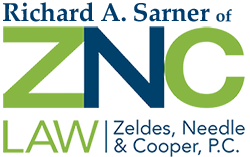Why is it Important to Have a Will?
If you die intestate — without a will — you will not have control over how your property is distributed at your death. Rather, the intestacy laws of your state will determine who is allowed to take what from your estate.
The court will appoint someone as the administrator of your estate. He or she will be responsible for gathering, cataloging and valuing your assets, paying your creditors and state and federal taxes and distributing any remaining property to your heirs. Generally this means that after all your remaining debts, taxes and probate administration costs are paid, the majority of your remaining estate will be left to your spouse and closest blood relatives, which is usually your children but may also include your parents and siblings.
Without a will, you will unable to leave anything to an alma mater, university or college, church or charitable organization. You will not be able to leave anything to friends or other relatives.
A will allows you to do more than merely determine where your property will go. A will also allows you to decide:
- Who should be named as the executor of your will
- Who should serve as a guardian for your minor children
- The type of funeral arrangements you want made
Some believe they can avoid probate and estate taxes if they do not have a will. This, however, is untrue. Even if you do not have a will, your estate will be submitted to the probate court. There are some types of assets — known as non-probate assets — that may pass on to your intended beneficiaries without a will. These commonly include life insurance proceeds, property held in joint tenancy with rights of survivorship, payable on death (POD) accounts, joint accounts and qualified retirement plans.
However, even if certain types of property do not have to go through probate, there is no way to ensure that none of your property will have to go through the probate process. Further, just because property is not subject to probate does not mean it is not subject to estate taxes. The probate estate and the taxable estate are two very different things. In fact, life insurance and qualified retirement proceeds are two types of non-probate assets that generally are included in the taxable estate.
Every person, no matter the extent of his or her assets should have a will. An experienced estate planning attorney can help you draft the document to reflect your wishes and accomplish your goals. Whether you want to avoid probate as much as possible, limit taxes or leave your property to a charitable organization, properly drafted estate planning documents can help you achieve these goals. Otherwise, you are leaving these important decisions up to the probate court.
Copyright © 2008 FindLaw, a Thomson Reuters business
DISCLAIMER: This site and any information contained herein are intended for informational purposes only and should not be construed as legal advice. Seek competent counsel for advice on any legal matter.
Back to Main
View Previous Months’ Selections










